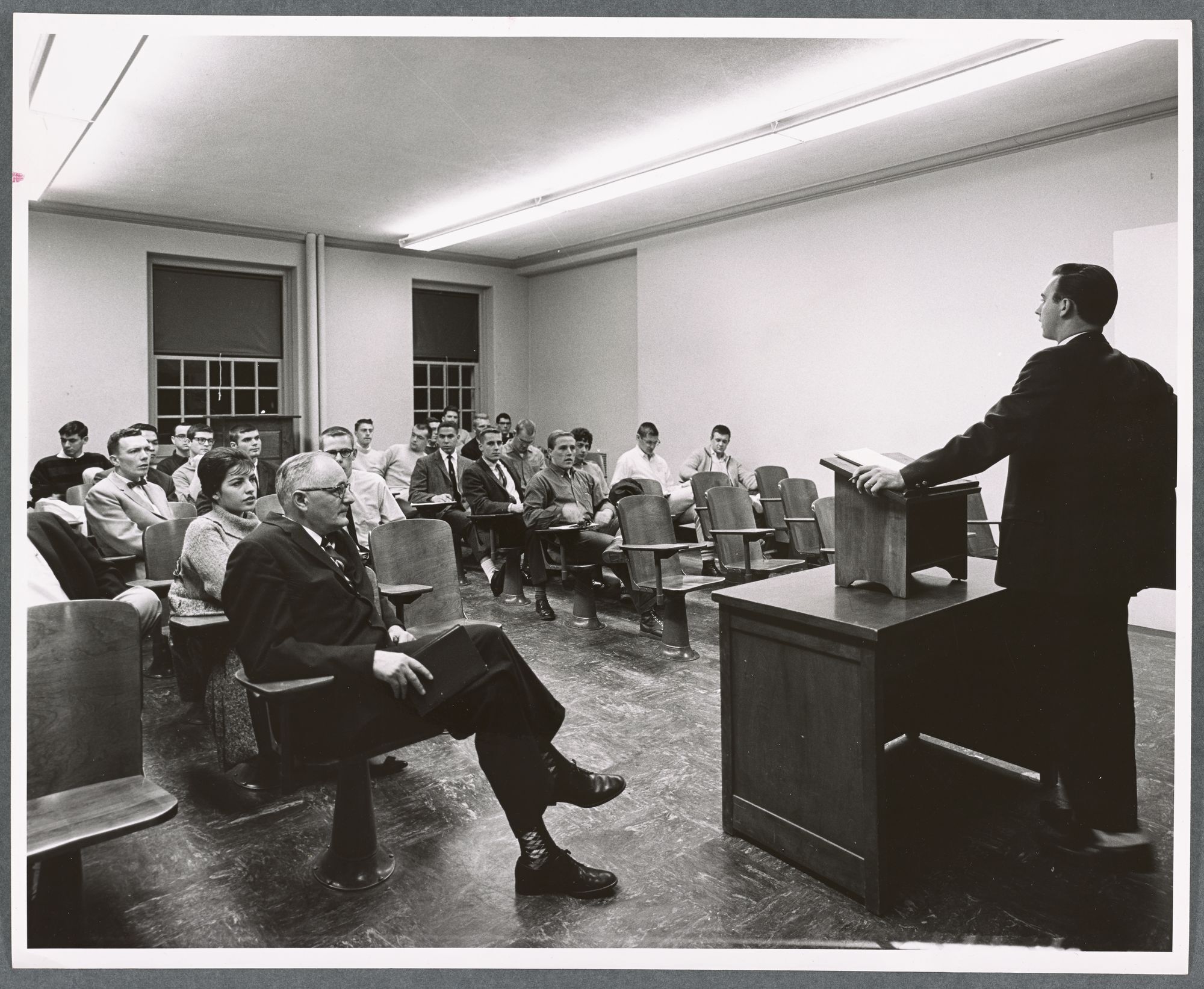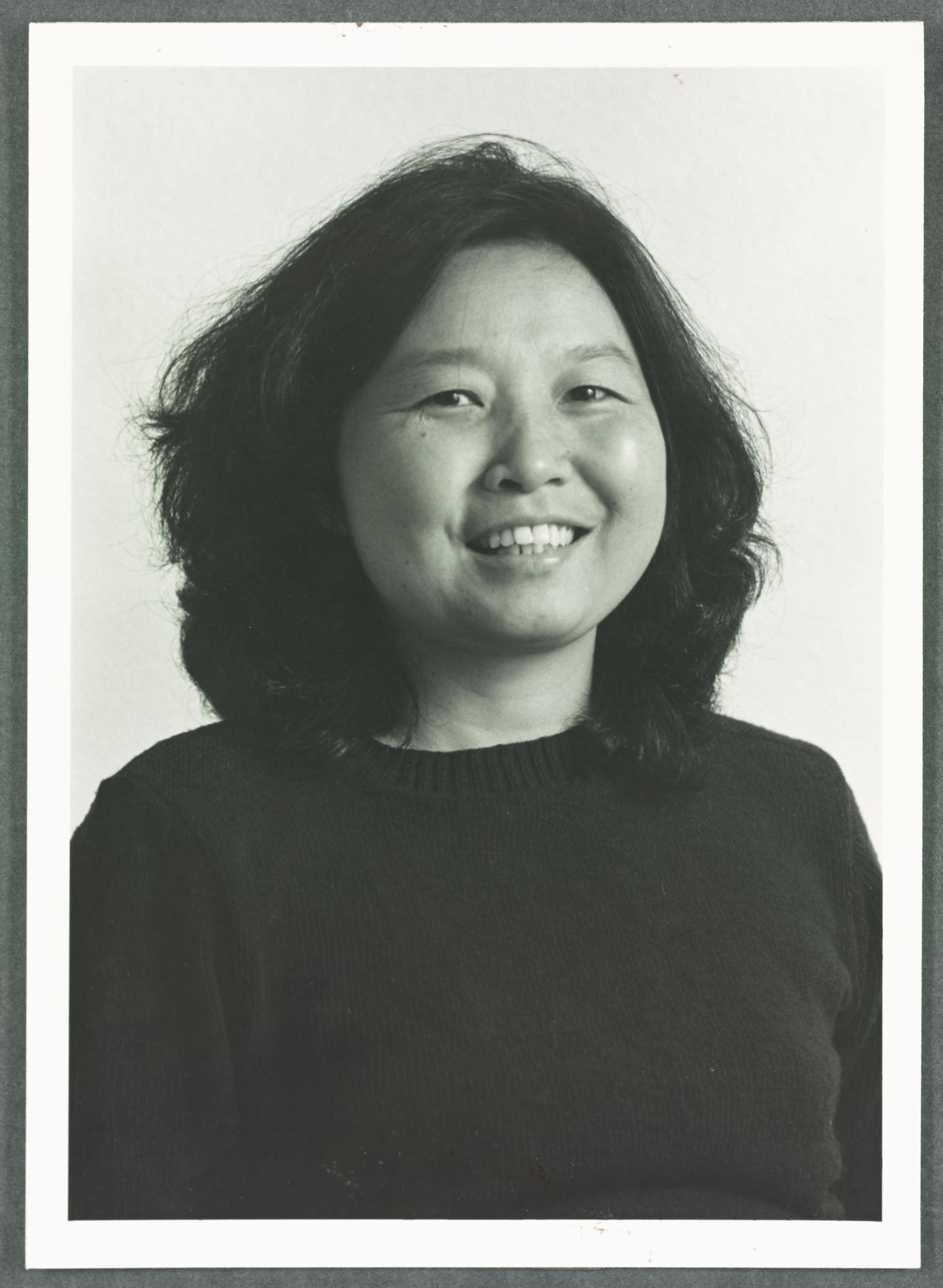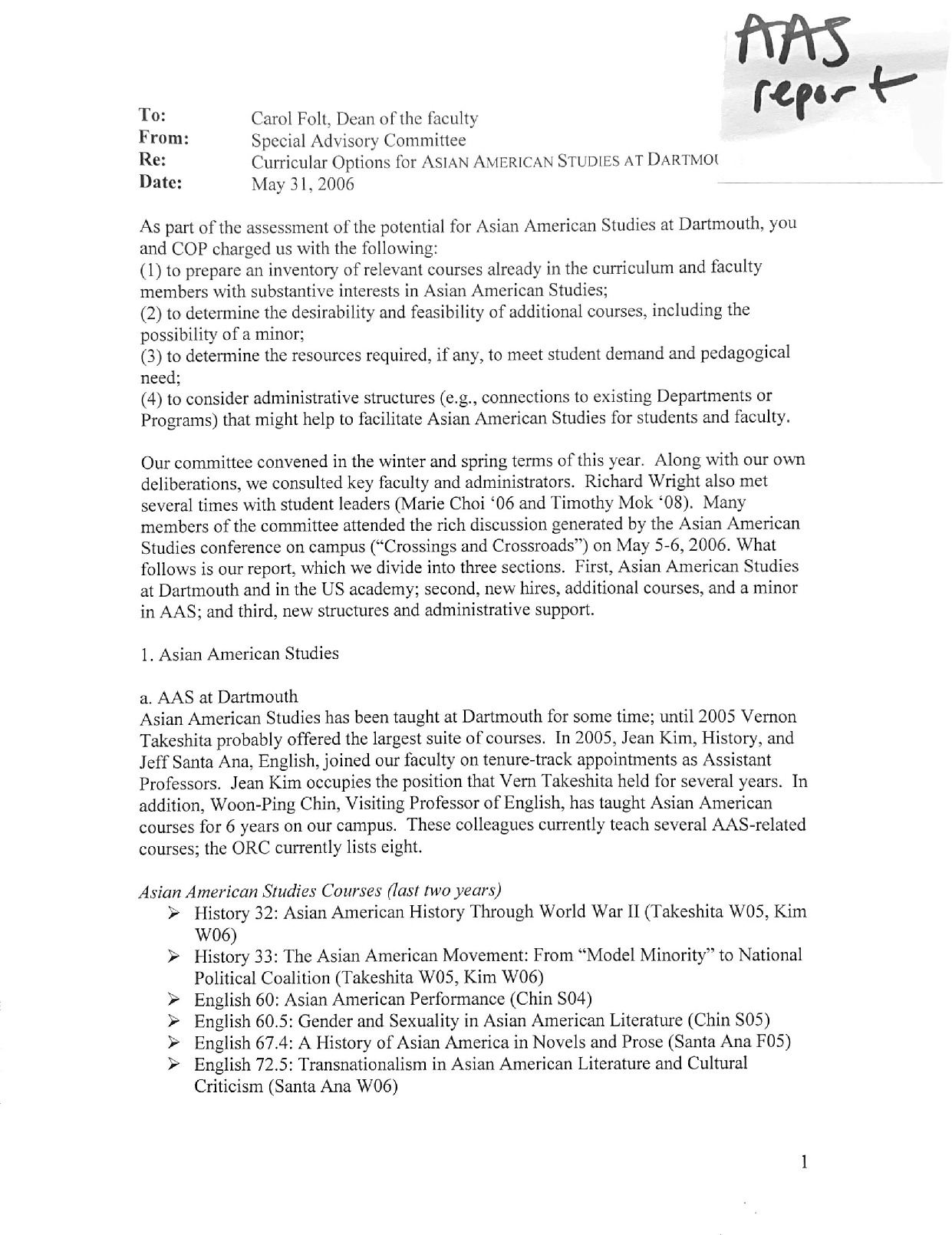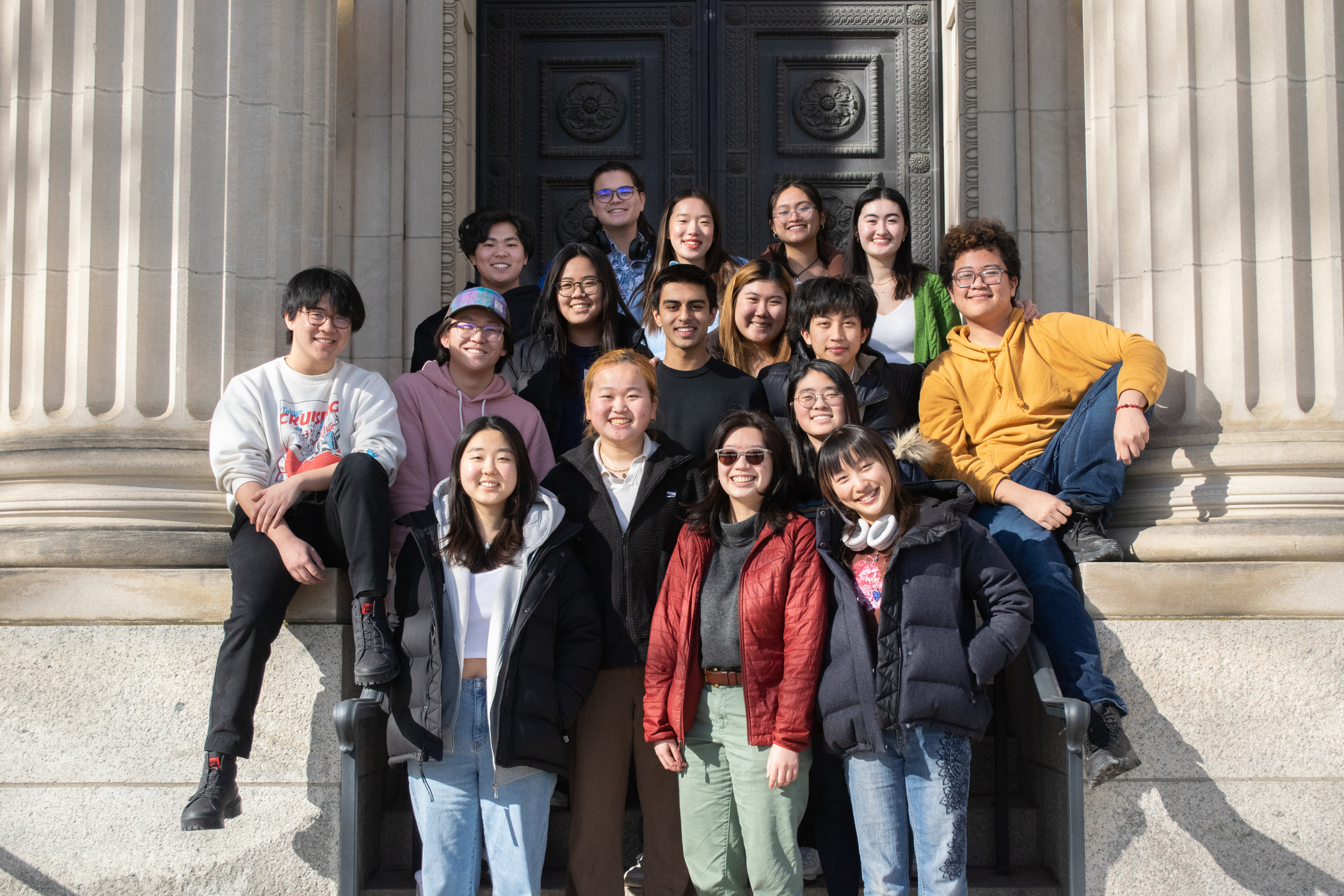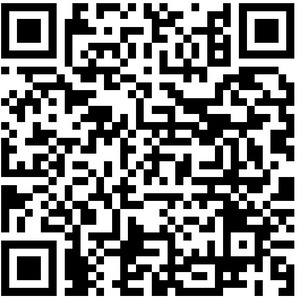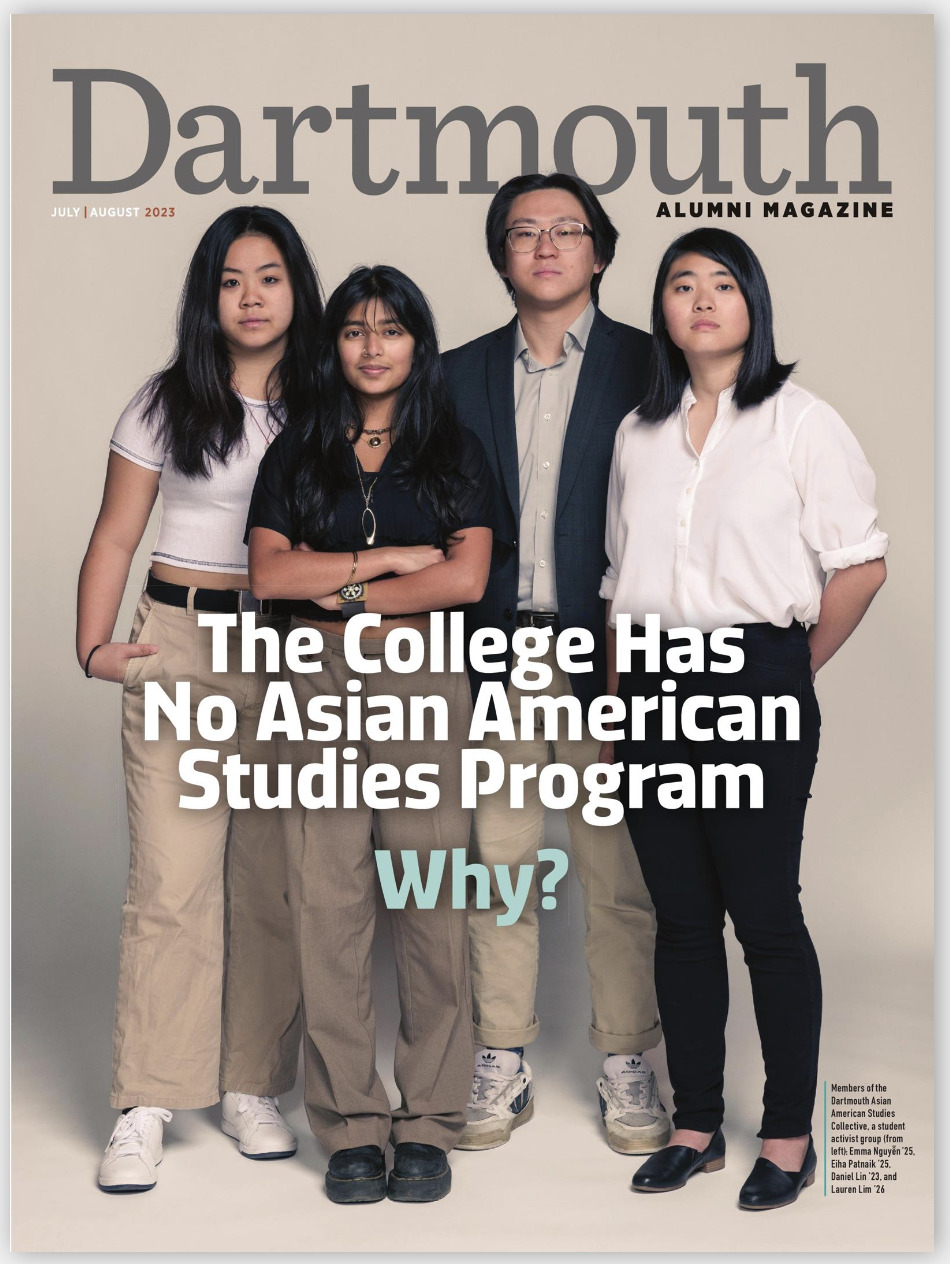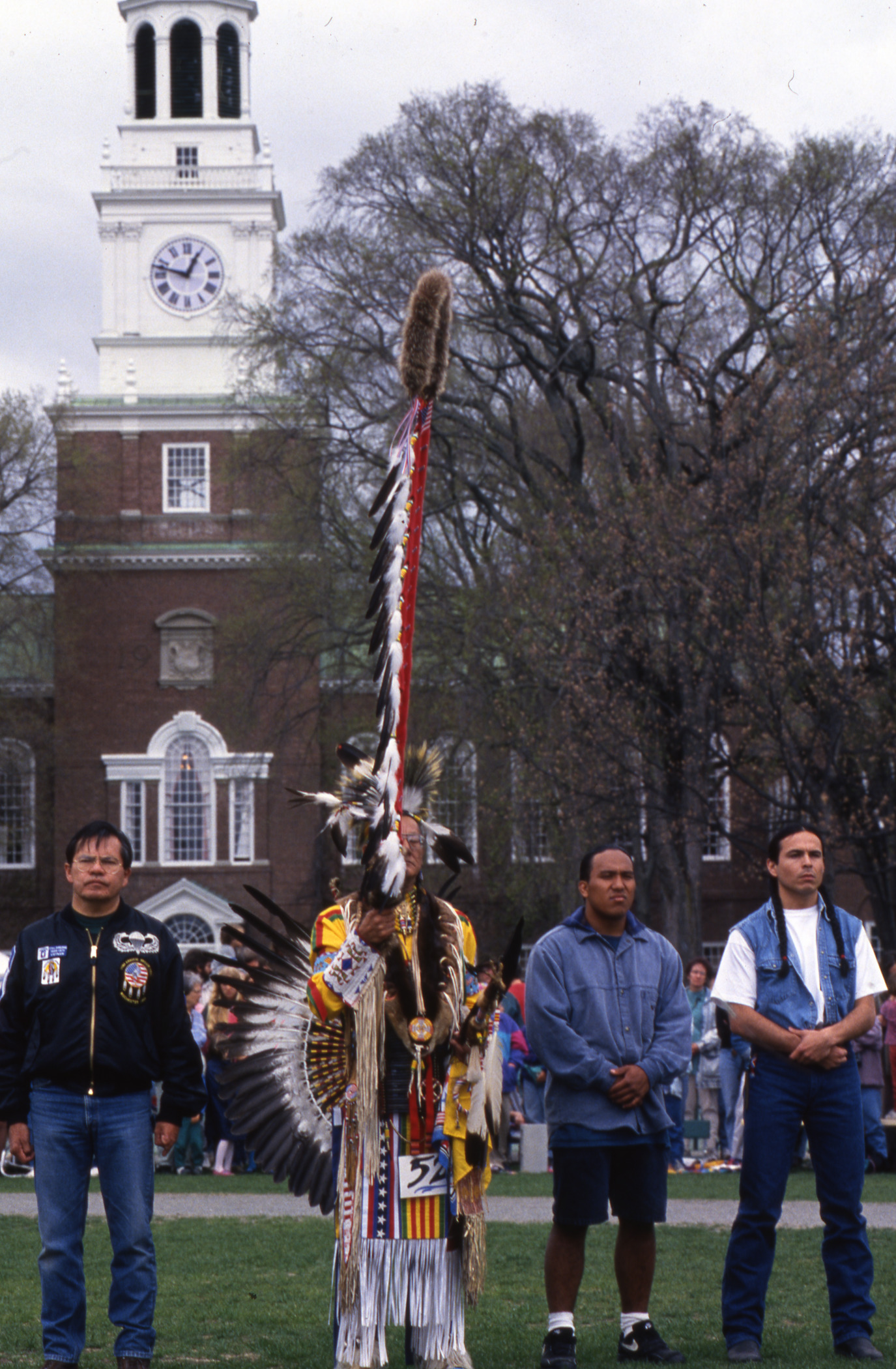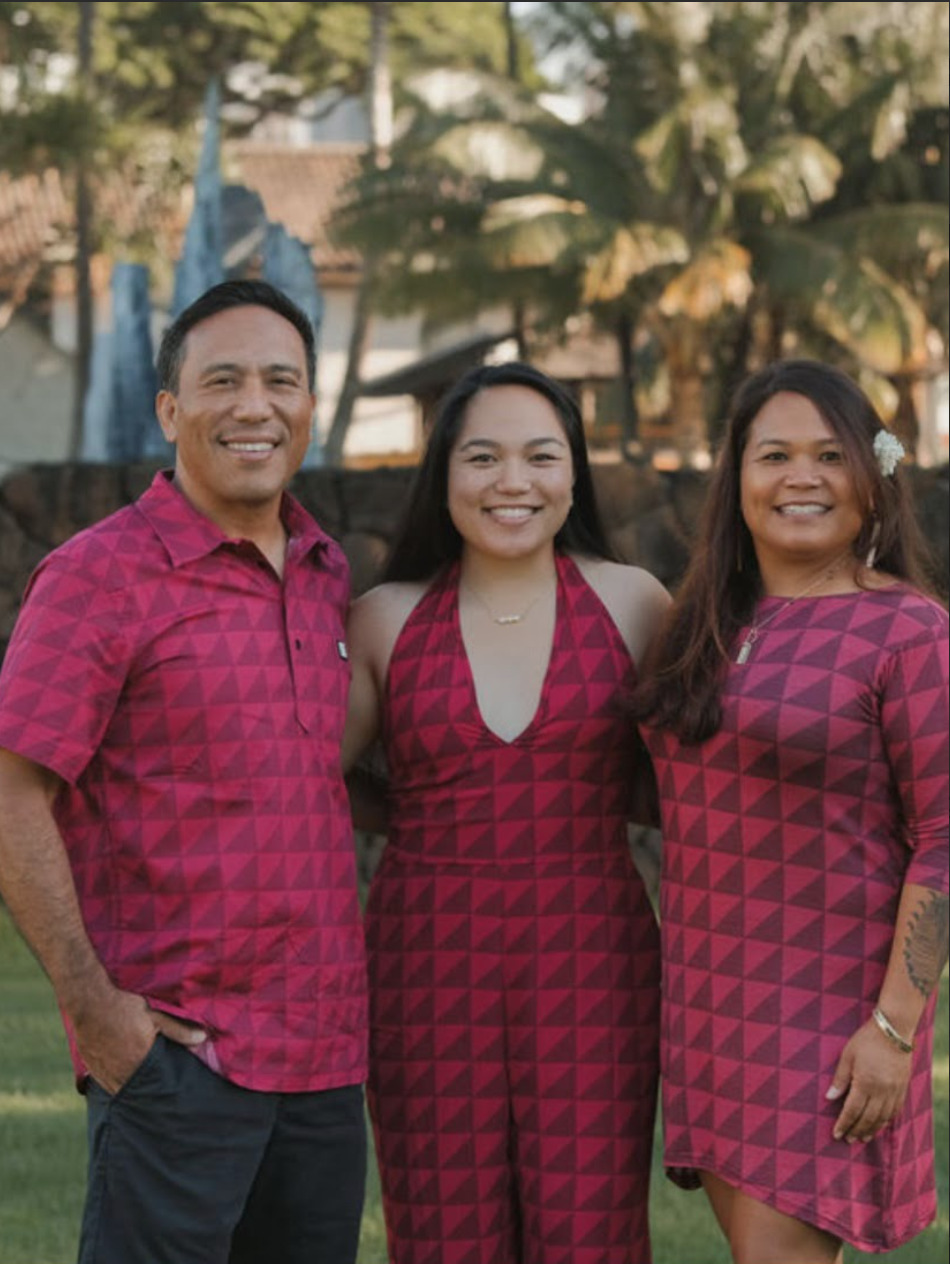Reclaiming Our Voices: Scholarship
Dartmouth was one of the first U.S. institutions to offer classes in Asian Studies, starting with Kan’chi Asakawa, Class of 1899, in 1902. Professor Wing Tsit Chan’s arrival in 1942 grew Dartmouth’s interest in the Asia-Pacific (APAC) region. Dartmouth established a separate, degree-granting Asian Studies Program and the Chinese language program in 1974 and the Arabic language program in 1987.
In 1997, the first Asian American Studies (AAS) course was offered through the History department by Vernon Takesita. Since then, students, professors, and alumni have continued to call on the administration for increased resources to improve faculty representation and the diversification of course offerings. As of Spring 2024, Asian American Studies is still not institutionalized as a program or department.
Dartmouth has longstanding academic engagements in the Asia Pacific, starting with Japan and Singapore. In 1982, Dartmouth solidified its partnership with the Beijing Normal University (previously known as Peking University), with its first foreign study exchange program. Since then, global partnerships have expanded, from Guarini’s FSP in Auckland & Polynesia, to Thayer’s exchange in Thailand, to Tuck’s executive education in India.
Faculty Scholarship
The first tenured Asian female professor was Hua-yuan Li Mowry, Associate Professor of Asian Societies Cultures and Languages. She chaired the Department of Asian and Middle Eastern Languages and Literatures, and helped to create the FSP at Beijing Normal University.
Faculty have long been instrumental in the call for an AAS/AANHPI discipline distinct from Asian studies. Faculty advocates include Josna Rege, former Associate Professor of English and Advisor to Milan, the South Asian student organization; David Kang, former Associate Professor Government and advocate for Korean language and studies; and Alexander Chee, Associate Professor in English. Today, Dartmouth faculty like Eng Beng Lim, Women, Gender & Sexuality Studies; Jodi Kim, English and Creative Writing; and Anjuli Kolb, English and Creative Writing, among others carry on this mantle of AAS scholarship and advocacy.
In 1999, the student group, Pan Asian Council put forth a proposal to establish AAS at Dartmouth. Following a 2004 petition garnering over 1,000 signatures in support, Associate Dean of the Faculty Michael Mastaduno assembled a committee and announced concerted efforts for an AAS program. The committee’s 2006 report argued for the institutionalization of AAS on campus: “The time has come for Dartmouth to move from an ad hoc collection of Asian American-related courses to offer a formal and coherence program in Asian American Studies…Our main argument…is intellectual.” Their argument supported the activists’ perspective that AAS is not only for AANHPI students, but an inextricable part of American history, as noted by a national movement to require it in the K-12 curriculum. Although each cycle of petitions, proposals, and advocacy measures have resulted in small steps forward, a program still has yet to materialize despite 30 years of activism.
Race, Power, and Politics
In 2023, Sociology 76 students conducted archival research to produce one of the most comprehensively researched online exhibits on Asian American Student Activism at Dartmouth College, digitally housed at the Dartmouth Libraries.
This was not the first time students took initiative to fill the gaps. In 1994, Jo Seuk ’96 and Gu Chung ’97 taught Korean language to fellow students. In 2017, Special Collections Fellow Hannah Chung published a digital exhibit exploring East Asian experiences on campus. In 2018, students created a course on Asian American Literature and Theory, under the guidance of Alexander Chee, Professor of English and Creative Writing.
Students have initiated various movements toward establishing Asian American Studies throughout Dartmouth’s history, with the most recent iteration being the Dartmouth Asian American Studies Coalition (DAASC) in 2021. Other groups include the Asian Pacific American Issues Form (APAmIF), Dartmouth Asian Organization's Asian American Task Force (AATF), and Asian American Students for Action (4A). In the summer of 2023, Asian American Studies was featured in the Dartmouth Alumni Magazine for the first time.
Profile: Keeper of Stories
Ty Kāwika Tengan ’97 P’25
From the island of Maui, Ty Kāwika Tengan did not originally consider Dartmouth until a college counselor encouraged him to apply due to its history of being dedicated, at least in intent, to educating Native students. Once Tengan arrived on campus, he quickly got involved with the Native Americans at Dartmouth (NAD) student club. Like many Native Hawaiians, Tengan is also mixed-race, including Okinawan, Portuguese, and German. Making a connection with Native American affiliations was new to him, because the groups have very different cultural and political histories. However, as Tengan became more involved in the student community and Native American Studies (NAS) with support services from the Native American Program (NAP), he found resonance in many of those histories: that of encountering the U.S. empire and suffering the worst of the effects of settler colonialism in their lands and waters, as well as the efforts to reconnect and sustain cultural and political identity against efforts to erase Native peoples.
NAD and NAP became his primary source of community, inspiring his thinking intellectually and eventually graduating with a modified Anthropology/NAS major. Through NAS courses, he learned the histories of colonization that directly impacted Hawaiians. While Hawaiians were not always represented in the curriculum, there was always space for connecting their histories and thinking about the future, a pedagogical approach that he believes offers us better visions for the future. In political anthropology, Tengan also learned how culture was tied intimately with politics and how politics itself is cultural. These learnings sparked his interest and served as the foundation of his career in academia.
Through the Mellon Mays Fellowship, Tengan conducted research on Hui O Wa'a (“Assembly of the Double Hull Canoes”), an organization in Lāhainā, Maui, that was building a new Hawaiian voyaging canoe. In the Hawaiian movement, culturally and politically, the construction and sailing of voyaging canoes is prominent and carries deep significance. At Dartmouth, he completed ethnographic fieldwork, interviewing the canoe builders, participating in activities, and learning from the men and women involved in the project, which informed his thesis The Architecture of Canoes and Nations: A Case Study in Hawaiian Cultural Nationalism, and deepened his appreciation and personal connections with the history of Hawai‘i and its people. In 1995, Tengan and a group of other students from Hawai‘i (including his now wife, Ku‘ulei Reyes ’98) founded Hōkūpa‘a at Dartmouth (now a Pan Pacific Club).
In the aftermath of the devastating 2023 wildfires in Lāhainā, his academic thesis continues to influence what is preserved and rebuilt. Tengan serves as a media commentator and community-based scholar through the restoration process, as he is a keeper of knowledge of places, names, and histories that have been ignored with an almost singular focus on tourism. As a Professor of Ethnic Studies and Anthropology at the University of Hawai'i at Mānoa, his research, ranging from Hawaiian masculinities, to militarism, to football (he - and his daughter, Li’ua ’25 - have played Dartmouth rugby), is on the forefront to rethink academic disciplines.
Tengan is hopeful that Hawaiian and Pacific students continue to thrive at Dartmouth: build community, find ways of linking their research to these broader projects back at home to reconnect their people, to restore sovereignty, to strengthen relationships to those in the islands and those in the diaspora. He is inspired by the work of the current students, including Li’ua ’25, a Co-President this year of Hōkūpa‘a whose annual Lū'au hosted over 700 participants in 2023. Tengan hopes that students continue to hone their strengths and carve out their place within the Dartmouth community as Hawaiians and Pacific Islanders, while always finding opportunities to connect in shared histories and experiences.

